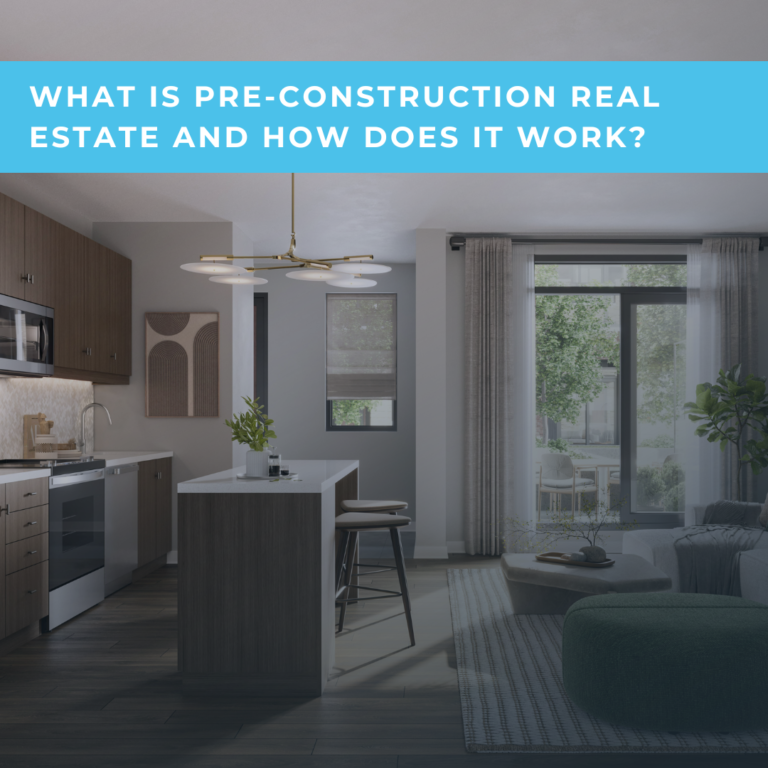
Introduction to Pre-construction Real Estate
Pre-construction real estate refers to properties sold before they are fully constructed. This concept allows investors and homebuyers to purchase real estate at an early stage, often at a lower price compared to completed properties. The pre-construction phase includes planning, design, securing permits, and construction. Buyers typically commit to purchasing based on architectural drawings and plans, rather than a physical structure. This form of real estate transaction offers a unique set of advantages, such as customization options and potential appreciation in value. However, it also comes with distinct risks, like delays in construction or changes in market conditions. Understanding pre-construction real estate is crucial for making informed investment decisions in this sector.
Overview of the Pre-construction Process
The pre-construction process begins with the conceptualization of a real estate project. Developers conduct market research to identify demand and decide on the project’s scale and design. Following this, they create detailed architectural plans and obtain necessary approvals from local authorities. Investors and buyers are then presented with the opportunity to purchase units during this phase. Contracts in pre-construction deals often include clauses detailing the project’s timeline, the scope of work, and buyer’s customization options. Regular updates from developers keep investors informed of progress. The process concludes with the completion of construction, at which point buyers typically finalize payments and take possession of the property.
Key Players in Pre-construction Real Estate
Central figures include developers, builders and real estate agents each playing a crucial role in the pre-construction process.
Understanding Developers and Builders
Developers play a pivotal role in pre-construction real estate. They are responsible for the overall vision, planning, and execution of projects. Developers typically acquire land, conceptualize the property’s design, and manage the entire development process. Builders, on the other hand, are the ones who physically construct the property. They work closely with developers, architects, and contractors to turn the project plans into a reality. The expertise and reliability of both developers and builders significantly impact the success of a pre-construction project, influencing everything from construction quality to adherence to timelines.
Role of Real Estate Agents in Pre-construction
Real estate agents in the pre-construction market serve as intermediaries between developers and buyers. They possess in-depth knowledge of upcoming projects and offer valuable insights into the potential risks and rewards of investing in pre-construction. Agents guide buyers through the selection process, helping them choose units that best suit their needs and budget. They also assist in navigating contractual agreements, ensuring that buyers understand terms, conditions, and obligations. Real estate agents play a crucial role in facilitating communication between buyers and developers, particularly regarding project updates and changes.
The Pre-construction Process
The main differences between pre-construction and traditional real estate lie in timing, risk, and potential rewards.
Investment Risks and Rewards
Investing in pre-construction real estate carries a different risk-reward profile compared to traditional real estate transactions. The primary risk involves project delays or cancellations, which can affect the investment’s timeline and return. However, the potential rewards can be significant, as buyers often purchase at a lower price point and can benefit from property value appreciation during the construction phase. The ability to customize aspects of the property is another unique advantage. Investors need to balance these risks and rewards, considering factors like the developer’s reputation and the market’s stability.
Timeline Considerations
One of the main differences between pre-construction and traditional real estate is the timeline. Pre-construction properties are not available for immediate occupancy, and the time from investment to possession can span several years. This extended timeline requires investors to have a long-term perspective. It also provides an opportunity for capital appreciation but comes with the uncertainty of market conditions at the time of project completion. Buyers need to be prepared for potential delays in construction and should factor this into their investment decision-making process.
Pricing and Value Appreciation
Pricing in pre-construction real estate is typically lower than that of completed properties, offering an attractive entry point for investors. The value of these properties can appreciate significantly by the time construction is completed, depending on market conditions. This appreciation potential is a key draw for many investors. However, it’s important to note that market dynamics can change, and there’s no guarantee of profit. Understanding market trends and economic factors that can influence property values is essential for making informed investment decisions in pre-construction real estate.
The Future of Pre-construction Real Estate
The future of pre-construction real estate is poised for growth, driven by increasing urbanization and a growing appetite for property investment. As cities expand and housing needs evolve, pre-construction offers an opportunity to meet these demands efficiently. However, the sector must navigate various challenges, including fluctuating market conditions, regulatory changes, and environmental concerns. Technological advancements in construction and project management are likely to improve efficiency and reduce risks associated with pre-construction projects. For investors, staying informed about market trends and regulatory developments will be key to capitalizing on the opportunities in this evolving sector. As sustainability and innovation become more prominent, pre-construction real estate is expected to adapt, offering new possibilities for investors and homebuyers alike.
Foundation Group: Your Expert Guide in Pre-construction Real Estate
Choosing the Foundation Group for your journey into pre-construction real estate means partnering with a team dedicated to finding the perfect property for your living or investment needs. Our expertise in project selection is tailored to align with your specific goals, budget, and preferred location. We understand the intricacies of contract review and negotiation, ensuring you receive the best possible deal. Our comprehensive project analysis covers crucial aspects like financing options, tax implications, and potential returns, equipping you with all the necessary information to make an informed decision.
In a dynamic and ever-changing market, our up-to-date knowledge is invaluable in providing access to the latest and most promising opportunities. Our extensive experience in the pre-construction sector has honed our ability to guide you seamlessly through every stage of the process. We recognize the uniqueness of each client and are committed to delivering customized solutions that resonate with your individual objectives. Moreover, our strategic partnerships with top developers grant you exclusive first access to the most sought-after pre-construction projects. Trust Foundation Group to be your reliable and expert guide in navigating the exciting world of pre-construction real estate.


